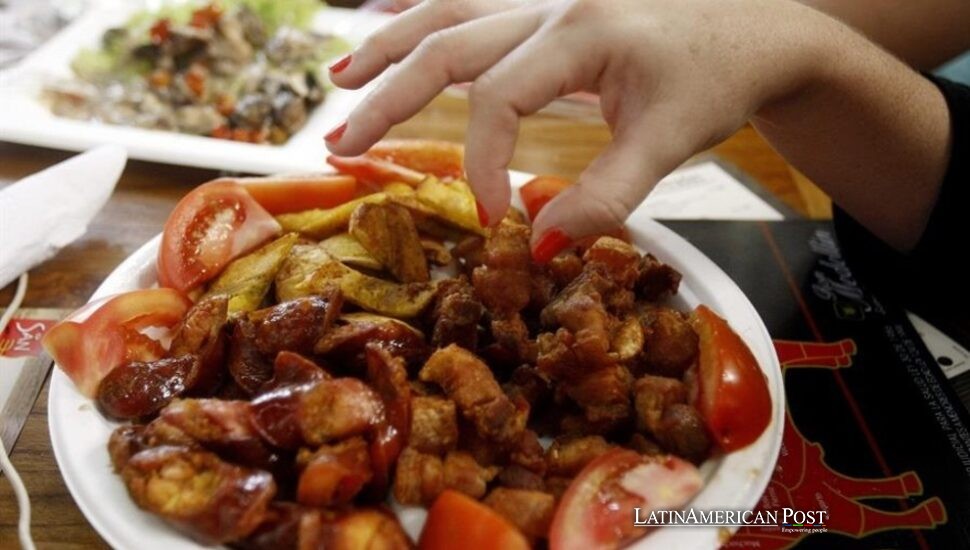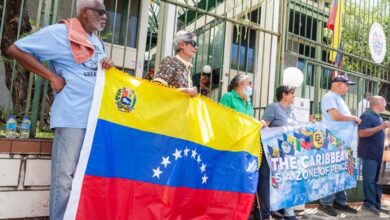Caribbean Kitchens, Catwalks, And Runways Reconnect Islands with African Roots

From a home kitchen in St Lucia to pan-African summits, the Caribbean’s reconnection with Africa is gathering momentum. Food, music, travel, and trade are driving the revival—and, as entrepreneurs and officials told the BBC, the determination now is to turn cultural pride into practical links.
A doctor’s second shift feeds a deeper hunger.
By day, Augustine Ogbu checks pulses and prescribes medicine in St Lucian clinics. By night, in his Rodney Bay kitchen, he stirs egusi soup and shapes fufu, filling the air with the aromas of Lagos on a festival evening. When friends kept asking him for Nigerian dishes, the 29-year-old physician launched Africana Chops in 2022, a modest home-based takeaway that quickly outgrew his pots and pans.
“Egusi soup and fufu, that’s more popular… they love jollof rice too,” he told the BBC, laughing at how fast locals learned the difference between pepper soup and suya. But the hunger, he insists, is about more than taste. “They know that we all have the same ancestral origin. So most of the time, they want to get in touch with that,” he said, noting how interest in African culture has grown “tremendously” since he arrived in 2016.
For Ogbu—himself a Nigerian who crossed the Atlantic to become a doctor—the kitchen became a bridge. One plate at a time, he discovered, food could reconnect the Caribbean present to an African past.
A new pan-Africanism reaches beyond pride to policy.
That bridge is no longer isolated. Across the Caribbean, expressions of African pride—such as cuisine, clothing, and festivals—are rising alongside a more pragmatic push for trade and political ties with the continent.
Dorbrene O’Marde, who chairs Antigua and Barbuda’s Reparations Support Commission, sees a distinct shift. “It was powerful in the 1930s or so, and then again in the 1960s,” he told the BBC, recalling earlier waves echoing Marcus Garvey and Black Power. “We are in a different phase now of pan-Africanism—one that’s not going to wane like before.”
The difference, he explained, is scope. “It has widened beyond psychological and cultural themes, and we are now talking in broader economic terms, such as stronger transportation links between the Caribbean and Africa.”
Institutions are trying to match the mood. The African Union, African Development Bank, and Afreximbank have hosted joint meetings with Caribbean counterparts, signing memoranda and outlining plans to increase trade from $730 million to nearly $1.8 billion by 2028, provided logistics improve. Leaders in the Bahamas and Grenada have even floated the idea of a shared digital currency to reduce transaction barriers—what Grenadian Prime Minister Dickon Mitchell called “a truly global Africa.”
Social media, Afrobeats, and the power of seeing yourself
If policy is starting to shift, culture has been there for years. Dennis Howard, a lecturer in entertainment and cultural enterprise at the University of the West Indies, credits TikTok and Afrobeats with reframing how young Caribbean people see Africa.
“People are learning more about black history beyond slavery,” he told the BBC from Kingston. Music videos filmed in Accra or Lagos often feature skylines and stylesstyles that appear more familiar than foreign. “We had a concept of Africa as this place where it is backward and it’s pure dirt road… the music is changing that.”
He rejects the argument that Jamaicans don’t need to “reclaim” African identity because they already forged their own. “Our whole culture is African, with a little sprinkling of Indian, European, and Chinese. However, for the most part, it is of African origin. It is the most dominant part of our culture.”
That recognition is turning into plane tickets. Ghana’s tourism authority told the BBC it has seen a “notable increase” in Caribbean visitors. South Africa’s consul to the Bahamas, Werner Gruner, said interest in safaris and cultural trips is growing: “I think people also start to realise that South Africa and other African countries are actually very well developed.” Even Burkina Faso, far from the usual tourist circuit, has piqued curiosity among Antiguans because of the fiery rhetoric of its young leader, Ibrahim Traoré, O’Marde noted.
Travel, trade, and the hard work of building bridges
Yet geography still complicates the dream. No direct air routes connect most Caribbean islands to African capitals, forcing travelers to route through Europe. Barbados Prime Minister Mia Mottley, who calls herself a “daughter of Africa,” urged the creation of “air and sea bridges” that work for “ordinary people who wish to trade, travel, and forge a shared future.” Without cargo capacity, customs efficiency, and reliable schedules, talk of deeper trade risks remains symbolic.
The World Bank’s logistics indicators confirm the gaps, and closing them will take capital and coordination. But steps are emerging. In June, Nigerian President Bola Tinubu signed cooperation agreements with St Lucia during a state visit. Back in Rodney Bay, Ogbu grins at the coincidence. “I can say I’m working hand-in-hand with the Nigerian government and even the St Lucian government to promote the African culture,” he told the BBC.
He hopes to expand Africana Chops into a restaurant soon—a tangible step toward the everyday exchange leaders describe. The Caribbean has always woven culture and commerce together: rum and reggae, carnival and cruise ships, steel pan and sound systems. Now, the African revival is adding new strands: kente cloth on Emancipation Day, Ghanaian cocoa in Trinidadian desserts, and St. Lucian fufu shared at family tables.
What binds it is the feeling Ogbu sees whenever he ladles out egusi. This is not just cuisine—it’s a compass. It points backward to ancestors stolen across the Atlantic and forward to a future where Caribbean families can cross back the other way, directly, with purpose.
Also Read: Mexico Confronts a Flesh-Eating Screwworm Surge Threatening Livestock, People, and Borders
“It’s awesome! I’m really, really excited about that,” Ogbu said. Cultural pride is filling plates and playlists. The next test is whether it can also fill cargo holds, ferry routes, and trade ledgers, ensuring this wave of pan-Africanism leaves behind more than memories.




